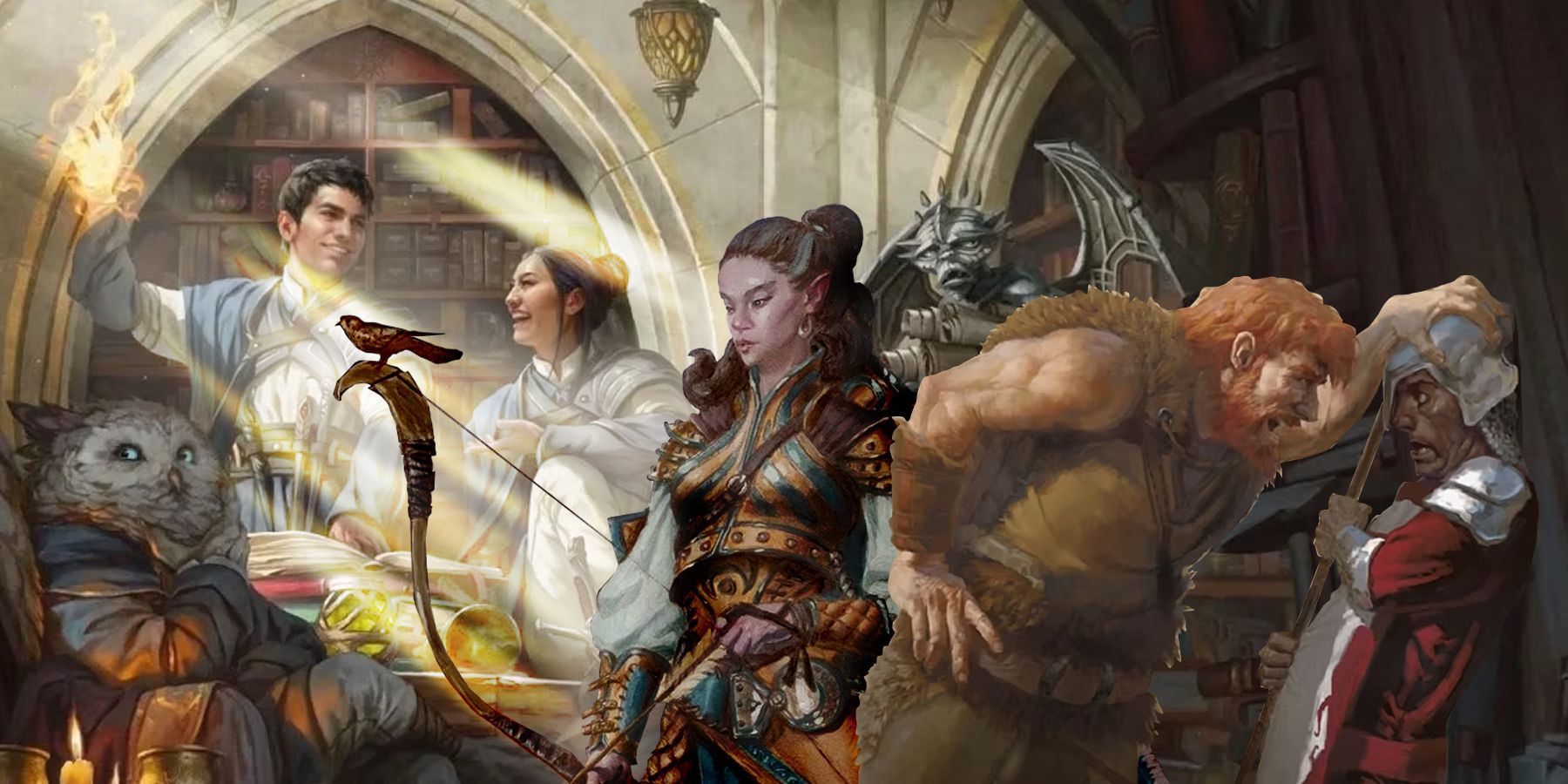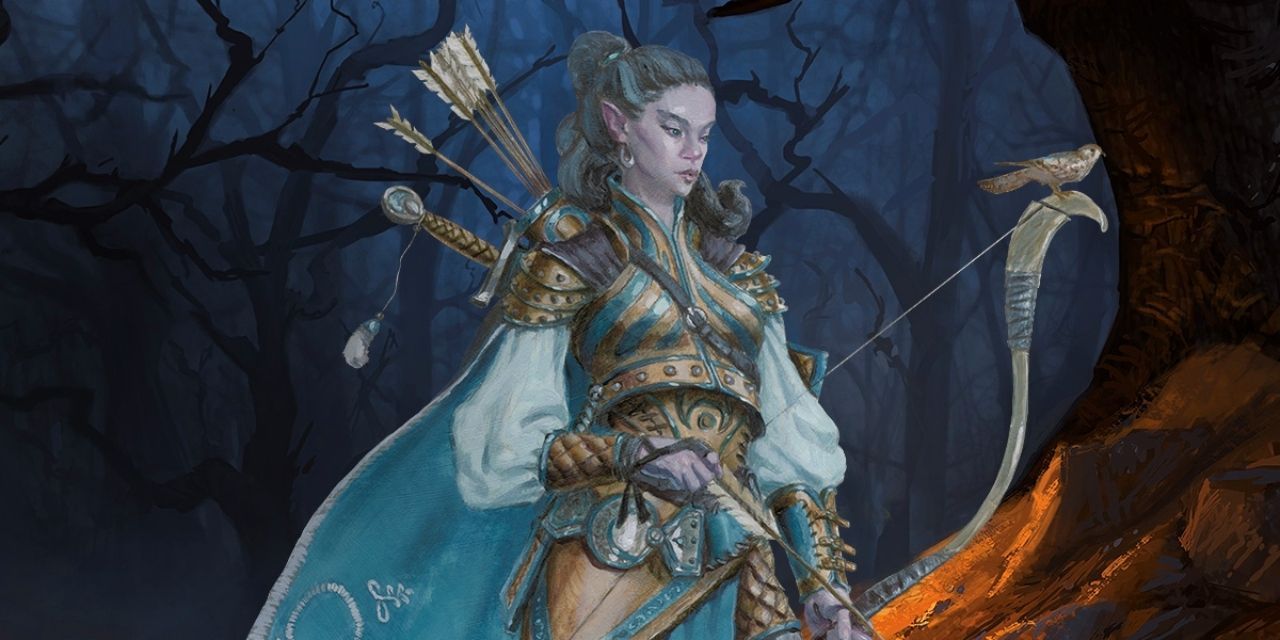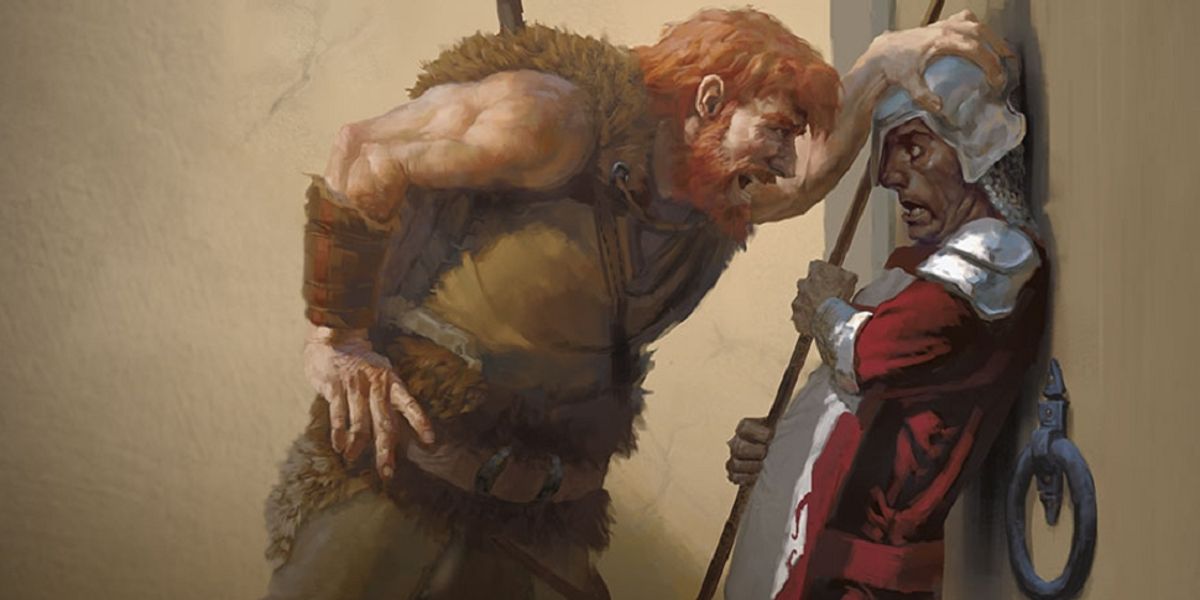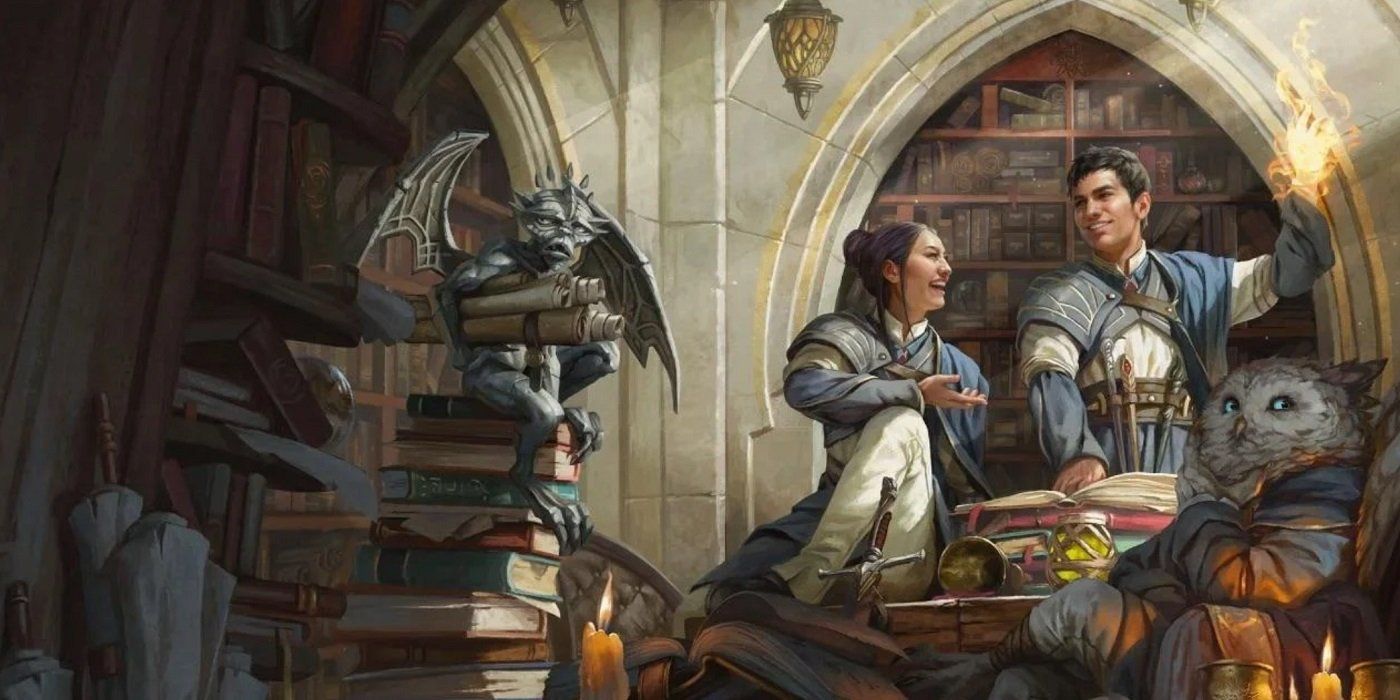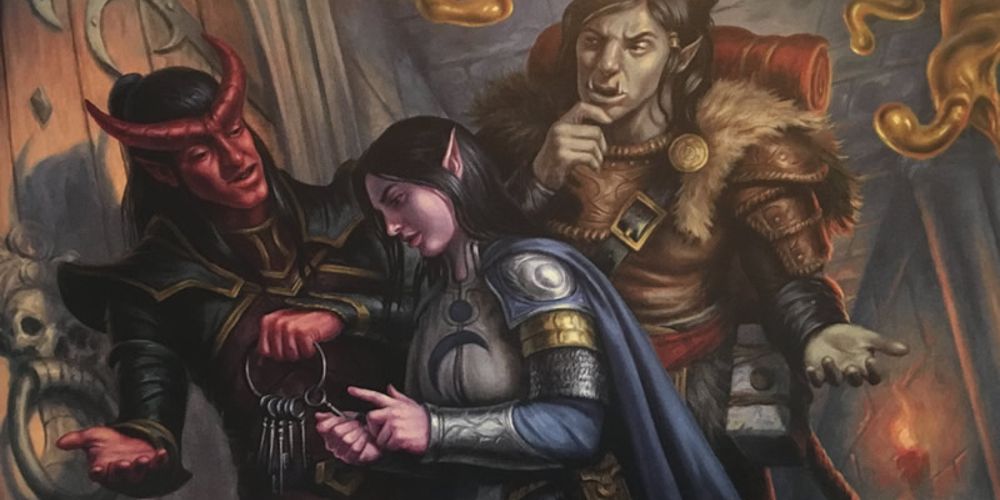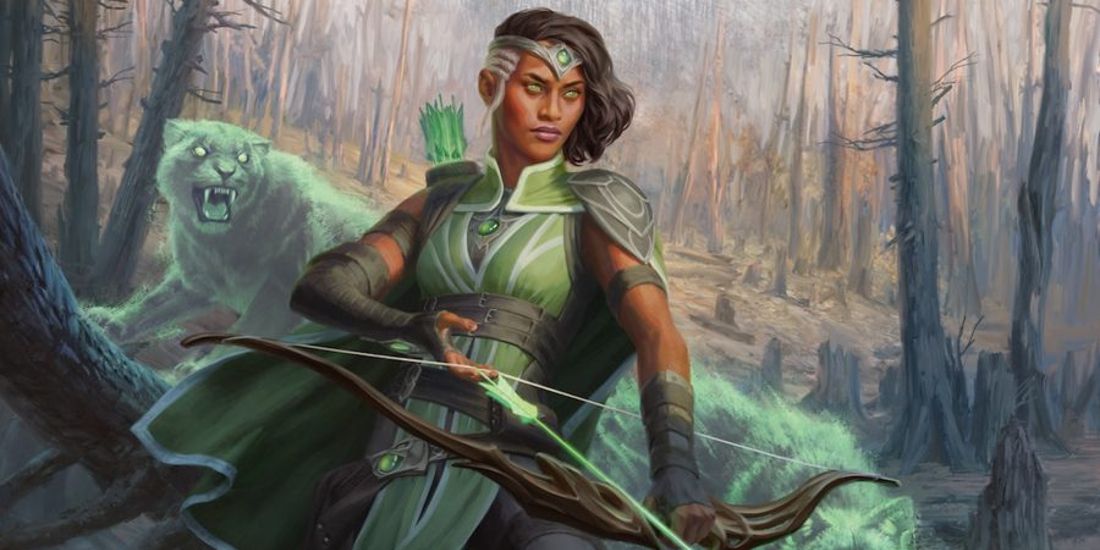Highlights
- Dungeons & Dragons is not solely focused on combat; players spend a significant amount of time navigating the world and interacting with characters.
- Certain skills, like Religion and Performance, may not come up as often in campaigns but can be useful in specific situations.
- Skills like Perception and Persuasion are highly valuable and should be possessed by at least one party member for successful quests.
Dungeons & Dragons isn't all about combat. Players aren't just hacking and slashing and casting Fireball — most of their time is spent navigating the world, hunting for treasure, and interacting with NPCs they encounter. And as they do, the success or failure of all their actions are governed by d20 skill checks.
All skills can come in handy; for example, druids use Animal Handling to rally their creature companions, and paladins can rely on Religion checks to inspire followers of their faith. Still, certain checks tend to come up more often across D&D campaigns. Others may not be as common, but are critical when they do appear. It's always an advantage to have at least one party member proficient in the following skills.
Updated October 25, 2023, by Demaris Oxman: Immersing oneself in a fantasy world is a huge draw for fans of RPGs, both in video game and in tabletop form. With the massive popularity of Baldur's Gate 3, plenty of players are returning to the source material: Dungeons & Dragons.
One important step of D&D's character creation process is choosing Proficiencies, ability skills for which that character receives a bonus. Each class has a predetermined list of skills from which the player may choose two to apply their Proficiency to (except for Bard, which may choose any three skills). The player's chosen Background will grant two specific skills as well. For new players, knowing which skills are most useful can be essential in choosing class skills, as well as choosing a background. As such, this list has been updated to include the classes and backgrounds that can grant Proficiency in each skill.
A huge number of additional classes and backgrounds are available through supplemental D&D materials. Since most newer players will start with the Player's Handbook and the basics included therein, only the base game classes and backgrounds are included in the discussion of skill proficiencies here.

Honor Among Thieves: 7 D&D Backstories Players Can Steal From The Cast
Players can steal these D&D backstories from the cast of Honor Among Thieves.
17 Religion (Intelligence)
This skill governs knowledge of the gods and their worship; for example, what certain gods represent, who worships them, and their followers' principles. Religion checks do have their uses in D&D; however, they rank low on this list because they are highly situational.
Generally, the only characters who use Religion checks frequently are Clerics and Paladins. The information these checks provide is rarely game-breaking, and can sometimes even be covered under other skill checks such as History or Arcana. However, it may be worth having one character in the party with a strong Religion skill, in case the adventure takes the players into ancient temples or has them face off against cults.
Proficiency
Classes with this option:
- Bard
- Cleric
- Druid
- Monk
- Paladin
- Sorcerer
- Warlock
- Wizard
Backgrounds that grant this skill:
- Acolyte
- Hermit
16 Performance (Charisma)
Performance skill checks can cover wide ground. A bard might busk for tips if the party is low on gold; two party members might make a scene as a distraction while the rogue picks a lock. Like other skills that fall lower on the list, though, Performance just isn't used very often. It's rare that a successful Performance check will save the party from danger, or that a failed one will put them in a bad situation.
Still, this skill can come in handy if someone in the party is trying to pass themselves off in disguise, impersonate an important figure, or get someone's attention. And of course, it's often an essential roleplaying skill for Bards and other creative types.
Proficiency
Classes with this option:
- Bard
- Rogue
Backgrounds that grant this skill:
- Entertainer
- Gladiator
15 Survival (Wisdom)
Survival covers skills that help one stay alive in the wilderness. Like Religion, though, it overlaps with other skills that are often more useful. Actions that a Survival check might cover (for example, scanning the area for dangerous animals or assessing the incoming clouds) can often fall under other skill checks such as Nature or Perception, making it redundant.
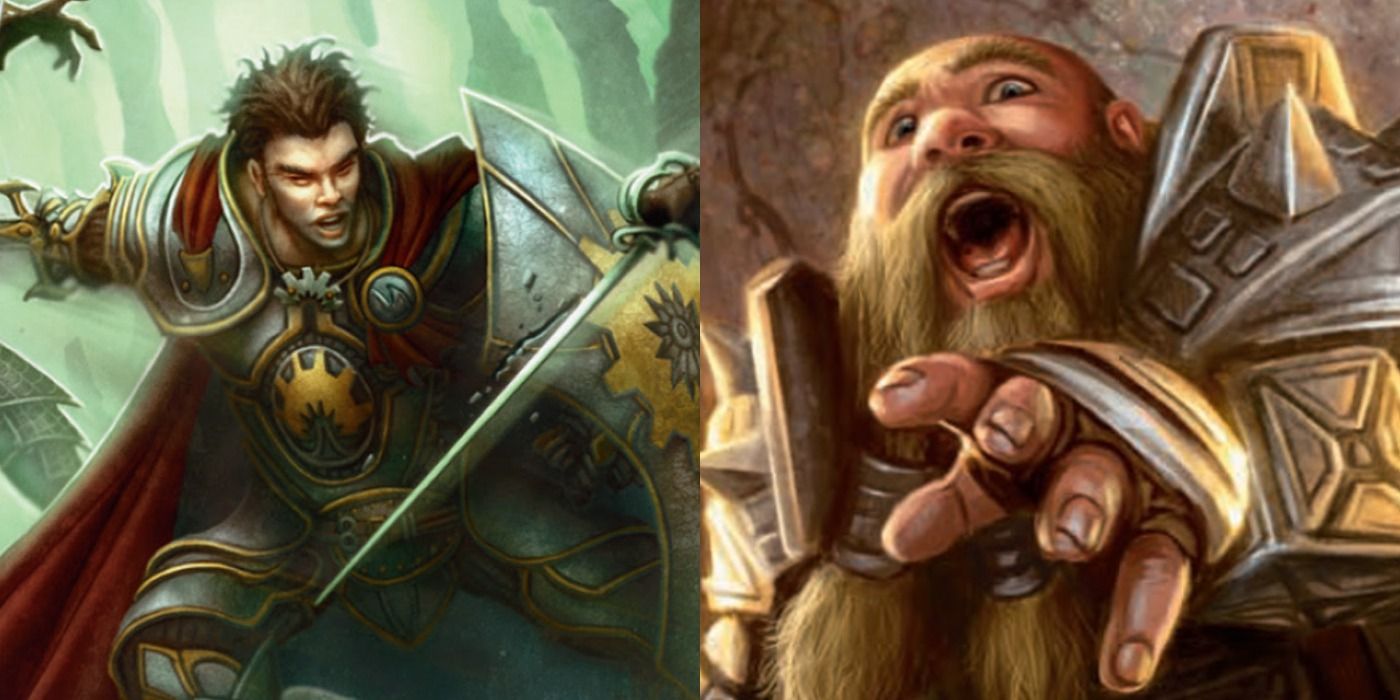
10 Feats That Make Dungeons & Dragons 5e Too Easy
Dungeons & Dragons players would do well to pick these feats if they want their tabletop gaming experience to be such a breeze.
Still, as with other less-useful skills, it's worth having at least one party member (such as a Druid or Ranger) with Proficiency in Survival, in case the party finds themselves wandering dangerous wilderness. In such cases, that player can take charge of building fires, finding clean water, and sussing out potential dangers.
Proficiency
Classes with this option:
- Barbarian
- Bard
- Druid
- Fighter
- Ranger
Backgrounds that grant this skill:
- Folk Hero
- Outlander
14 Animal Handling (Wisdom)
Looking to pet an unfriendly dog, catch a stray goose, or climb onto a wild horse? Roll Animal Handling. Like many skills on the lower end of this list though, Animal Handling checks simply don't happen very often.
This skill might come in handy when facing animal enemies, or when used in tandem with the spell Speak With Animals to try and make allies out of beasts. Additionally, it may be more relevant in certain campaigns. For a party venturing through wilderness, Animal Handling may help them survive encounters with snakes or bears. For a city-dwelling party, though, it might not be as useful.
Proficiency
Classes with this option:
- Barbarian
- Bard
- Druid
- Fighter
- Ranger
Backgrounds that grant this skill:
- Folk Hero
13 Medicine (Wisdom)
Medicine might seem useful on the surface, covering first aid and the like, but it's not as useful as other Wisdom skills. Usually, characters don't need to know why they're bleeding; they just need a healing spell to make it stop.
Medicine checks might come in handy when trying to identify an ailment, find a cure, or even gain information about a local narcotic for a quest. It can be a useful skill in keeping the party safe, but it's a bit more niche than higher-ranking skills.
Proficiency
Classes with this option:
- Bard
- Cleric
- Druid
- Paladin
- Wizard
Backgrounds that grant this skill:
- Hermit
12 Intimidation (Charisma)
Getting NPCs to cooperate can get tricky. Fortunately, D&D characters have a variety of options to make it easier. Intimidation is one of them: the ability to scare or bully people into submission.
This skill can be helpful in getting information or items that players want or need, but it can come at a price. Depending on how the party wants to be perceived by NPCs, Intimidation might not always be the wisest tactic. Use it on the baddies, but try not to scare innocent townsfolk — unless that's the reputation a character wants.
Proficiency
Classes with this option:
- Barbarian
- Bard
- Fighter
- Paladin
- Rogue
- Sorcerer
- Warlock
Backgrounds that grant this skill:
- Soldier
11 Arcana (Intelligence)
Knowing what spells are active at any given time can be invaluable, potentially saving the party's skins. If magic is known to be present, an Arcana check can determine the school of magic, and potentially who or what might have cast the spell or enchantment.
Arcana checks are great when it comes to identifying magical objects or traps. At other times, they can potentially allow the party to take precautions and protect themselves from imminent threats. Like History and Animal Handling, Arcana is a situational skill. Players may not find themselves rolling for it as often as Perception or Investigation, but a good Arcana roll can provide essential information.
Proficiency
Classes with this option:
- Bard
- Druid
- Sorcerer
- Warlock
- Wizard
Backgrounds that grant this skill:
- Sage
10 History (Intelligence)
Understanding the laws, lore, and legends of one's area can be invaluable in a D&D campaign. Successful History checks can help players identify important people or locations, understand an area's local customs, and pinpoint dangers that may surface in a given locale. History checks can also give book-smart characters a head start on quest objectives, letting them know where to start looking for an item or enemy without having to chase rumors.
However, unlike skills that rank higher on this list, a History check is unlikely to rescue the party from a dangerous situation. They're useful, but situational, and aren't life-saving as some others can be.
Proficiency
Classes with this option:
- Bard
- Cleric
- Fighter
- Monk
- Warlock
- Wizard
Backgrounds that grant this skill:
- Knight
- Noble
- Sage
9 Nature (Wisdom)
Whether they're traversing a snowy wasteland, hostile wood, or blistering desert, the party will be at nature's mercy at some point in most campaigns. When navigating the untouched wilderness, Nature checks allow players to guide themselves by the stars, determine whether a storm is brewing, or find the safest place to camp for the night.
Like History, Nature checks can also be useful for identifying dangers. While History checks provide general background information, though, knowledge of Nature is more immediate and specific. There's an animal lurking in the trees — is it a predator, or a harmless creature? Which mushrooms are edible, and which berries are poisonous? Knowing these details can help parties avoid unnecessary risks.
Proficiency
Classes with this option:
- Bard
- Druid
- Ranger
- Warlock
Backgrounds that grant this skill:
- None
8 Sleight Of Hand (Dexterity)
There's more to this rogueish skill than picking pockets and shoplifting. Jimmying a lock, forging a signature, trying to pocket a valuable magic item before the party's sorcerer sees — all of these actions require deft, silent hand movements, and all can come in handy throughout a campaign.

Dungeons And Dragons: Beginner's Guide To Fairies
Fairies are just one of the many races available in Dungeons and Dragons. Here's everything to know about them before character creation.
In a broad sense, Sleight Of Hand describes one's ability to use one's hands without others noticing. When players approach it from that angle, it becomes incredibly versatile. For example, since some spells require somatic components (i.e., movements), a player may attempt a Sleight Of Hand check to cast such a spell without NPCs noticing. Similarly, characters may communicate via hand gestures, with Sleight Of Hand checks indicating how subtly they do so.
Proficiency
Classes with this option:
- Bard
- Rogue
Backgrounds that grant this skill:
- Charlatan
- Urchin
7 Athletics (Strength) / Acrobatics (Dexterity)
Throughout the Forgotten Realms, there are cliffs to be scaled, paths blocked with boulders and trees, sinkholes that open up beneath one's feet, and more. In situations like these, characters rely on their muscles or flexibility. Both Athletics and Acrobatics aid characters in physically navigating the world. Since Athletics is governed by Strength, it covers checks such as climbing or moving heavy obstacles. Dexterity-based Acrobatics, meanwhile, might mean balancing on a narrow bridge or vaulting over a fallen tree.
These skills rank together because they cover similar scenarios. Many situations provide players with the option to choose between Athletics or Acrobatics, depending on which skill is higher or what makes more sense for their character. Climb down the rock face, or dive gracefully into the water below? D&D is all about choice.
Proficiency
Classes with these options:
- Athletics:
- Barbarian
- Bard
- Fighter
- Monk
- Paladin
- Ranger
- Rogue
- Acrobatics:
- Bard
- Fighter
- Monk
- Rogue
Backgrounds that grant these skills:
- Athletics:
- Outlander
- Pirate
- Sailor
- Solder
- Acrobatics:
- Entertainer
- Gladiator
6 Deception (Charisma)
For characters who have a knack for getting into trouble (which is to say, most TTRPG characters) this skill is essential. Quite simply, Deception is the ability to lie convincingly. A roll for this skill will determine how obvious a character's tells are when trying to sell their story.
Whether a character is pretending to be someone else, selling a counterfeit product, or providing a false alibi, players can use Deception to unlock opportunities that would otherwise be barred to them. It may irritate Lawful Good members of the party, but they'll thank their resident tricksters in the end.
Proficiency
Classes with this option:
- Bard
- Rogue
- Sorcerer
- Warlock
Backgrounds that grant this skill:
- Charlatan
- Criminal
5 Investigation (Intelligence)
This skill is useful in a scenario that comes up over and over again: looting for items. Whether the party has slain a troupe of ruffians or stumbled upon a treasure-filled cellar, an Investigation check will tell characters what they find when they're rummaging through bodies, chests, or crates.
High rolls on this skill may allow players to find rare or valuable items. Meanwhile, a low roll may result in players missing out on an essential clue, such as a letter hidden in a slain foe's pocket.
Proficiency
Classes with this option:
- Bard
- Ranger
- Rogue
- Warlock
- Wizard
Backgrounds that grant this skill:
- None
4 Insight (Wisdom)
Not all NPCs are to be trusted. Even if they're not strictly lying, they may have hidden agendas, or information that they're not sharing. A quest-giver might downplay the dangers that await in a given location. Townsfolk might avoid discussing their tyrannical ruler, for fear of being imprisoned. Insight is a character's skill at reading other people, and determining what their angle is.
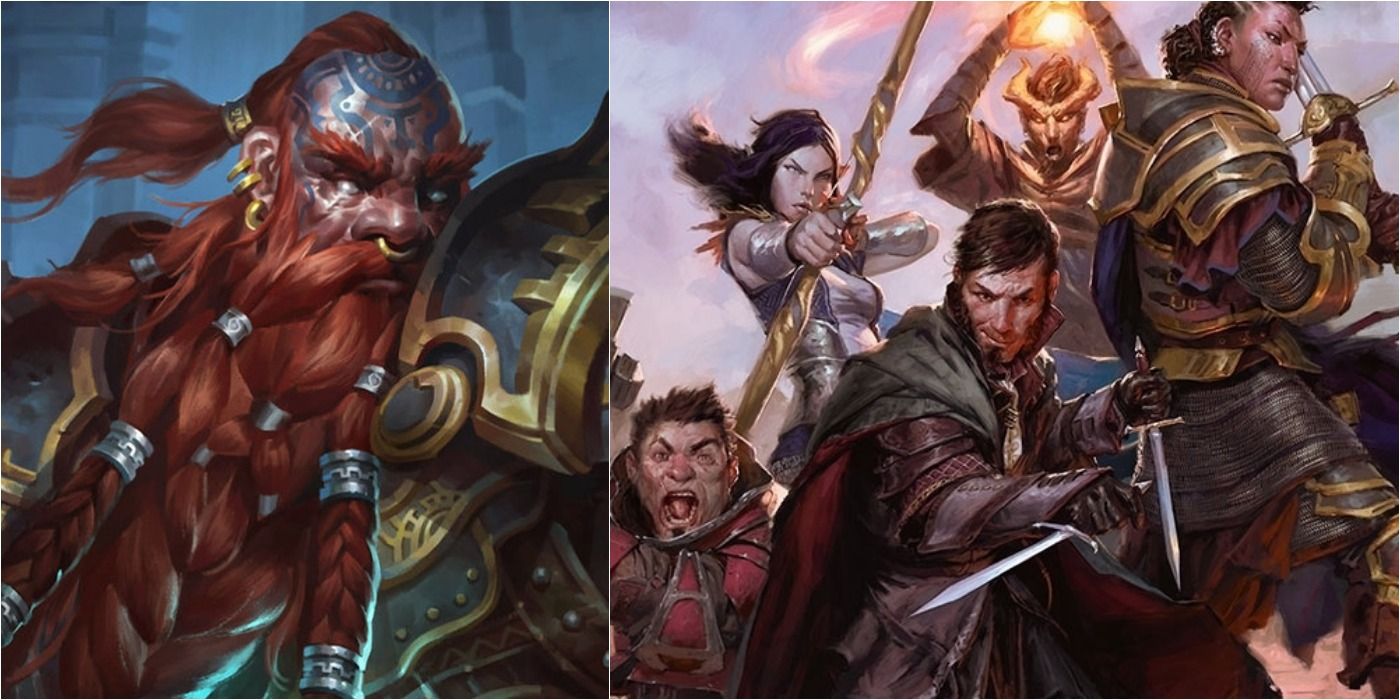
Dungeons & Dragons: Best Starting Equipment For Each Class
Every class in Dungeons & Dragons works differently. Here's the best starting equipment you can have for each.
This skill doesn't come up as often as some others, but when it does, a successful or failed roll can determine the direction that an interaction or quest will take. Can the party evaluate a dangerous situation, and outsmart an NPC who's trying to play them? Or will they fall into a trap, and wind up in a dungeon full of angry goblins? Either way, players (and even the DM) may be in for a different adventure than they expected depending on how an Insight check goes.
Proficiency
Classes with this option:
- Bard
- Cleric
- Druid
- Fighter
- Monk
- Paladin
- Ranger
- Rogue
- Sorcerer
- Wizard
Backgrounds that grant this skill:
- Acolyte
- Guild Artisan
3 Stealth (Dexterity)
No matter what the Barbarian says, it's not always the best idea to charge headfirst into battle. Whether the party is storming a castle, sneaking through caves full of hostile creatures, or just trying not to wake a sleeping bear, Stealth checks can make or break an encounter.
By sneaking, the party may be able to gain the element of surprise when attacking a foe. Alternatively, a character may be able to gather intelligence in enemy territory without being spotted. Ask any Rogue, and they'll confirm that Stealth is always a smart approach — when it's successful.
Proficiency
Classes with this option:
- Bard
- Monk
- Ranger
- Rogue
Backgrounds that grant this skill:
- Criminal
- Urchin
2 Persuasion (Charisma)
Every party needs a smooth talker. Whether trying to gain access to a restricted area, convincing an NPC to agree to a plan, haggling a shopkeeper, or getting information out of someone, a silver tongue does the trick. Because it comes in handy so frequently, Persuasion is one of the most useful skills in the game.
The Intimidation skill can work in many of the same circumstances; however, it's easier to catch flies with honey than with vinegar. NPCs may not take too kindly to the party if one character becomes known for their threats and scare tactics. A persuasive character can use words to get their way, and stay on everyone's good side.
Proficiency
Classes with this option:
- Barbarian
- Bard
- Cleric
- Fighter
- Rogue
- Sorcerer
Backgrounds that grant this skill:
- Guild Artisan
- Knight
- Noble
1 Perception (Wisdom)
For parties to complete their quests, it's often necessary to pick up on little details in the environment. DM's know this all too well, and often hide essential information that players might not notice outright. Whereas Insight involves reading another's behavior, Perception checks test the keenness of a character's senses.
A successful check might allow a player to pick up the sound of footsteps that tell them they're being followed, or sense an eerie feeling in the air that tells them dangerous magic is nearby. With a character proficient in Perception, players can pick up essential clues or get the drop on their enemies. In almost any scenario from combat to exploration, a high Perception roll will tell players something they didn't know before. This universal utility makes it the most useful ability skill in D&D.
Proficiency
Classes with this option:
- Barbarian
- Bard
- Druid
- Fighter
- Paladin
- Ranger
- Rogue
Backgrounds that grant this skill:
- Pirate
- Sailor

